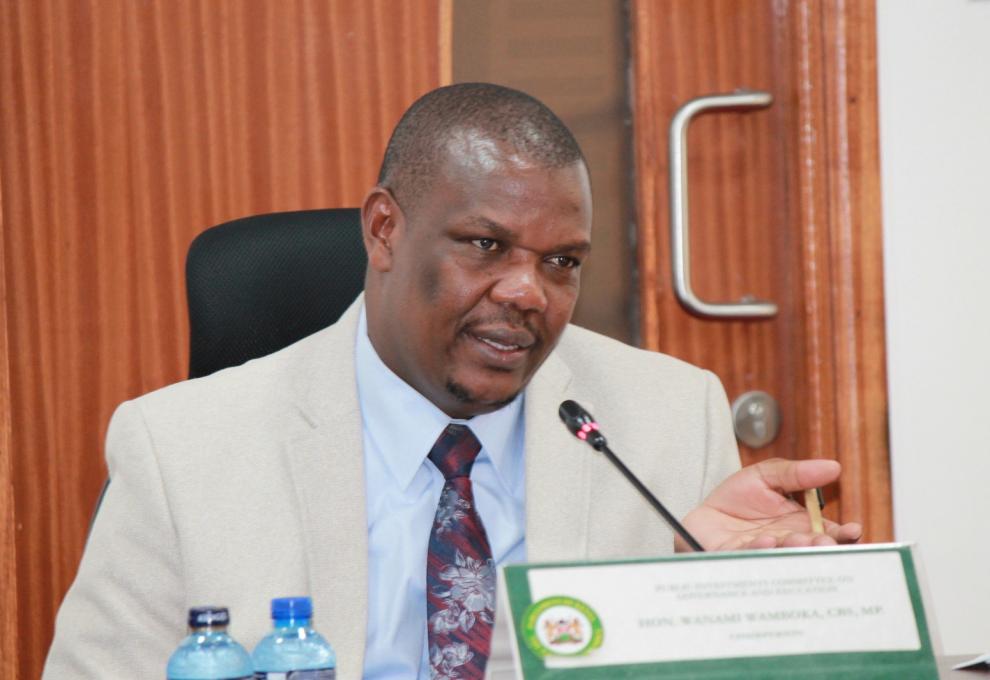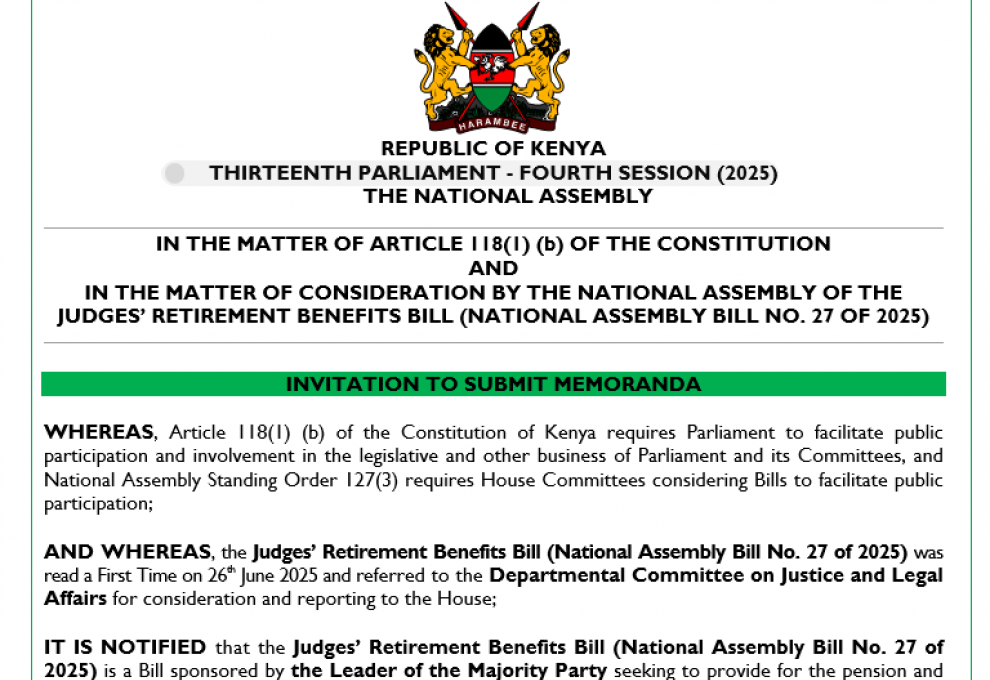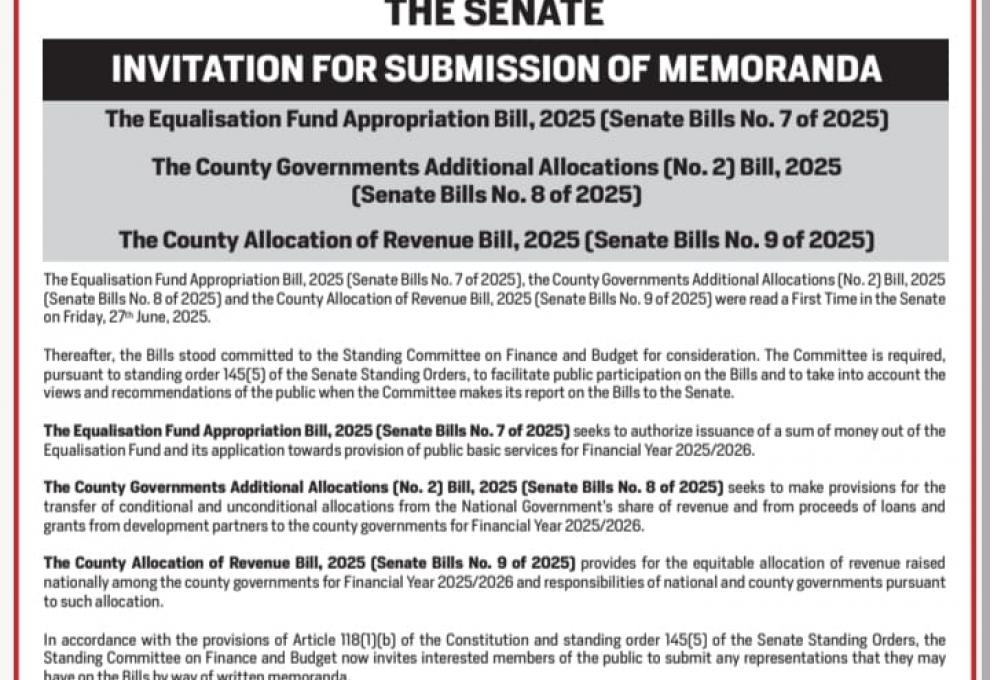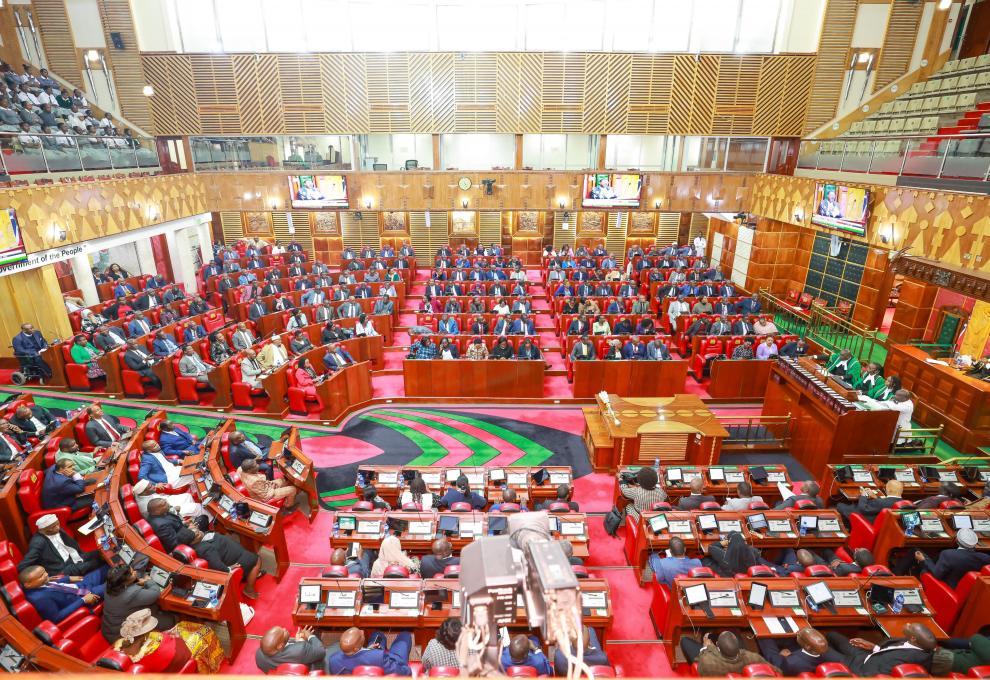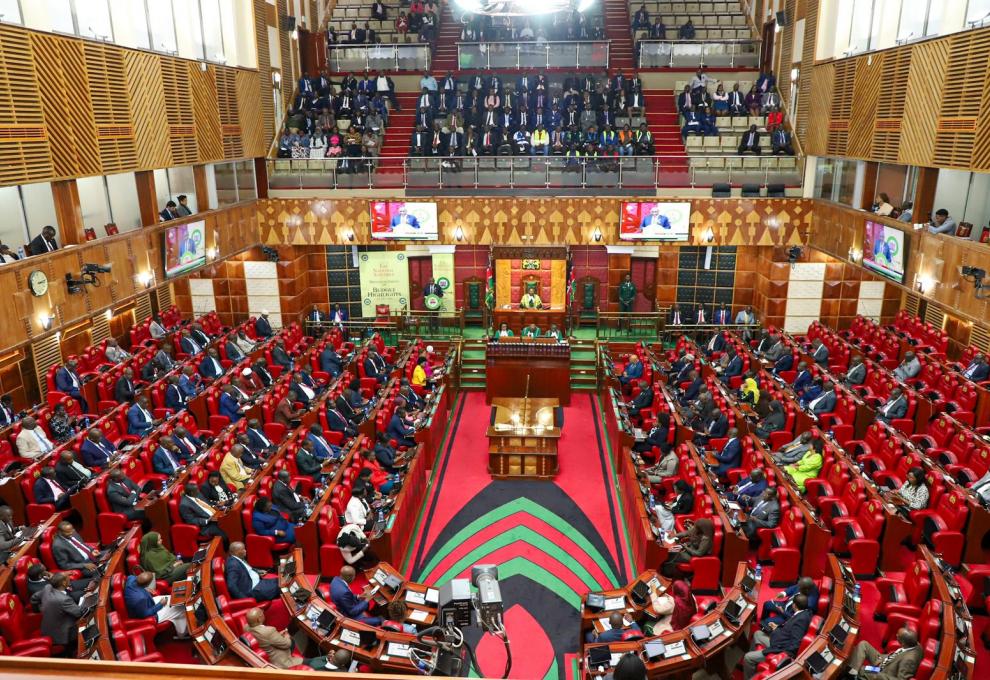DIRECTORATE OF LEGISLATIVE AND PROCEDURAL SERVICES
Background.
The legislative process of the National Assembly requires orderly and timely disposal services, as well as a properly-structured and dedicated system to offer legislators and other stakeholders, technical support to effectively deliver in their legislative engagements. In order to guarantee the achievement of these critical objectives, the Directorate of Legislative and Procedural Services was established as one of the key functional units under the Office of the Clerk to provide administrative and procedural support that facilitate the work of the National Assembly in fulfilling its constitutional mandate.
Mandate.
The mandate of the Directorate of Legislative and Procedural Services includes providing procedural and legislative support, administrative support and an interface between the House and internal and external stakeholders.
The Directorate discharge the following duties and responsibilities:
- Preparation of the draft Parliamentary calendar for approval by the House;
- Preparation, processing and circulation of the weekly programme of Business, Order papers and the resultant Votes and Proceedings of the National Assembly;
- Provision of procedural advice to the House Leadership, Members, Clerk of the House, Staff and members of the public on parliamentary procedures, traditions, practices, conventions and processes;
- Offering administrative support and services in the management of joint sittings and interactions between Houses of Parliament;
- Providing a linkage between the National Assembly and external national and international legislative bodies including the Senate, Commonwealth Parliamentary Association (CPA), Inter-Parliamentary Union (IPU), East African Legislative Assembly (EALA), African-Caribbean and Pacific-European Union (ACP-EU) Assembly, Pan African Parliament (PAP) and Inter-Governmental Authority on Development (IGAD) and managing respective Parliamentary Desks that facilitate linkages;
- Drafting and marshaling publication of Bills, Motions, Sessional Papers, Statements, Questions and Petitions;
- Coordinating capacity building programs for legislators, including visiting legislators, staff and other stakeholders including Members of County Assemblies (MCAs) and County Assembly Staff, among others.
Our Clientele.
- The Members of the National Assembly.
- The Parliamentary Caucuses.
- The Senate.
- The Judiciary.
- The Executive - Government Ministries, Departments and Agencies.
- The Constitutional Commissions.
- The Independent Offices.
- The Members of the Public and Citizens.
- The Public Stakeholders and Private Sector and their Institutions.
- The Non-Governmental and Civil Society Organizations.
- Other Parliaments and Parliamentary Organizations both local and international.
- Educational Institutions.
- The Clerk, Directorates, Departments and Units in the National Assembly.
- The Clerk, Directorates, Departments and Units in the Senate.
Structure and functions of Departments in the Directorate.
For increased efficiency, the Directorate has three Departments, namely Table Office, Procedural Research & Journals Office and Inter Houses and Overseas Office Departments. The Directorate is headed by the Director and assisted by the Deputy Director. The three Departments are each headed by the Heads of Departments.
Departments
- Table Office (TO).
Functions.
- Preparation of the Order Paper and Weekly Programme of the House.
- Preparation of the Calendar of the House.
- Processing and managing of Administration of Oath, Communications from the Chair, Messages, Papers, Questions, Statements, Motions and the Speaker’s brief before and during the House Sittings.
- Processing and managing amendments to Bills and House Reports.
- Conveyance of House decisions.
- Conveyance of Messages.
- Managing the House Business Committee.
- Managing the Chairpersons of the Committee’s Panel.
- Procedural Research and Journals Office (PRJ)
Functions.
- Generating papers and briefs on procedural issues.
- Developing procedural manuals.
- Developing parliamentary factsheets
- Preparing Bi-annual and Annual Reports of the House.
- Processing and Indexing of Votes and Proceedings.
- Developing and coordinating publication of technical legislative resources under the authority of the Clerk
- Coordinating and facilitating public seminars and lectures.
- Liaising with the County Assemblies including providing support for capacity building.
- Management of the National Assembly Committee of Powers and Privileges.
- Management of the Public Petitions Committee.
3. Inter - Houses and Overseas Office (IHOD)
Functions.
-
- Coordination and management of Joint Sittings of Parliament.
- Coordination and management of House ceremonial activities; that includes the presentation of the Budget Highlights and appearances of Cabinet Secretaries in the House to answer questions.
- Management of Inter Parliamentary Desks.
- Facilitation of collating and preparation of budgeting, planning and procurement for the Directorate and the three Departments.
- Co-ordination of programs relating to study tours and visiting dignitaries by other Parliaments and other visiting delegations.
- Management of the Procedure and House Rules Committee.
For more information about the role and activities of the DLPS, click:. Factsheet No. 24 Directorate Legislative and Procedural Services; and Factsheet No. 05 on the Members Handbook










